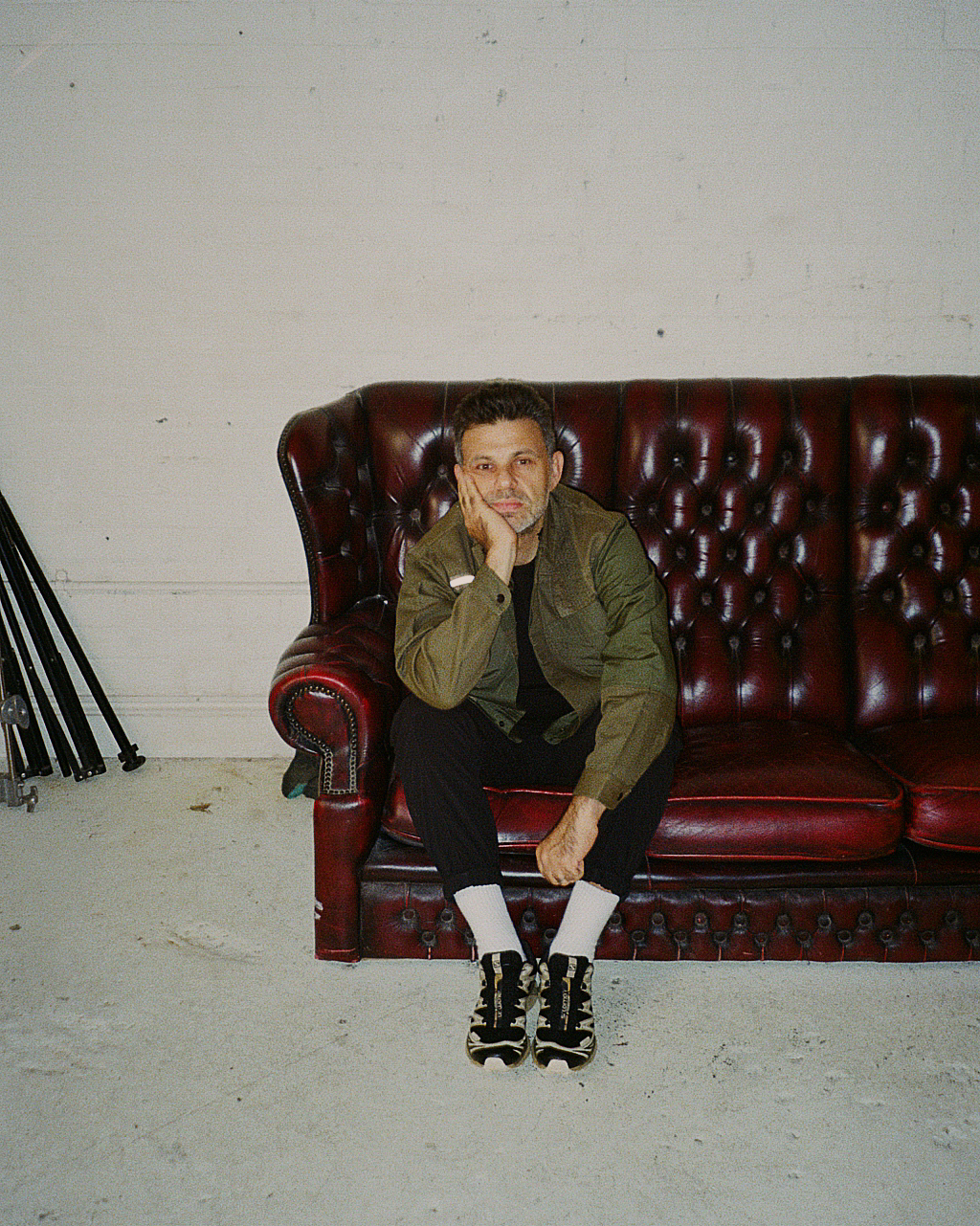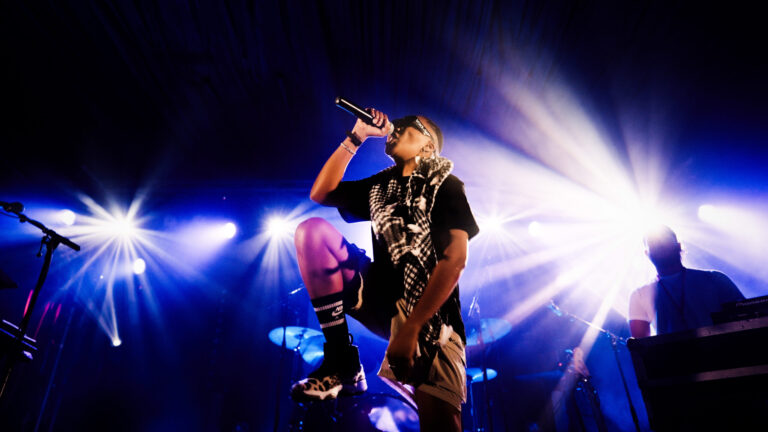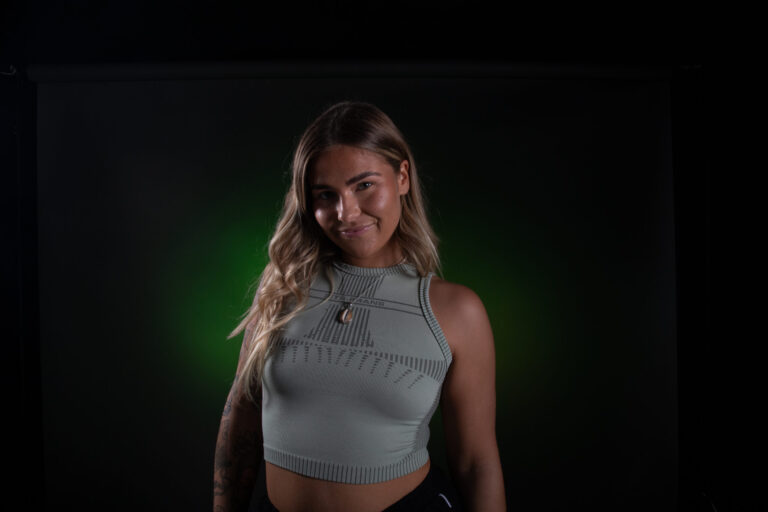In the run-up to the release of his latest project Kasra, the maestro behind Critical Music, graced us with an interview that was nothing short of a joy to conduct. Chuckling his way throughout, Kasra defied the norm, blending humility with profound insights, weaving a conversation that mirrored the complexity of the drum and bass world he navigates.
As the captain of Critical Music, Kasra’s journey unfolds from nurturing broken artists through the underbelly of the underground, eventually setting sail towards bigger sales and grandiose events. His allegiance to the authentic beats of the underground remains unwavering, evident in the resonance of his label and his ever-evolving musical narrative.
Kasra shares snippets of his creative process, weaving a tale of inspiration drawn not just from music but from the eclectic tapestry of life. From record shopping to photography, he delves into the importance of breaking free from the digital clutches of social media to rediscover the analogue joys that fuel his creative fire. We reflect on the ever-evolving landscape of the music industry, grappling with the challenges of sustaining the local underground scene amidst the allure of colossal events. His insights into the delicate balance between big shows and intimate venues reveal a nuanced understanding of the ecosystem that nurtures both emerging artists and established acts.
In an era where beats are commodified, and artists find themselves at the mercy of digital algorithms, Kasra’s commitment to putting music first remains unwavering. ‘Dream Metal’, in all its sonic splendour, stands as a testament to Kasra’s dedication to the craft and his unyielding belief in the power of authentic, underground beats
How are you?
I’m really well. I’m in a hyper-productive, creative time which feels really good. The label is vibrant, DJing is good, my family are well. So yeah, I can’t complain, my football team is all right. I’m a Tottenham fan and they’re okay!
That’s good to hear. What’s got the creative juices flowing?
I’m one of those people who feels that I have to be in a certain place in my head to be really creative and really throw myself into a project. I find that the label and the demands of the label as it’s grown, has meant that you’re creative because of the fact that you have to be, which is good because it motivates me. For the other artists and for the events and for all the things we do for the label, I have to keep on it because we need to keep moving, for example when we need to make an A&R decision for an artist and I’m not in the right place then it’s gonna be really frustrating for them.
But tied into that- I feel that with the artists on the label, there’s a lot of really exciting things going on which then inspires me. The people who are around me and who I’m exposed to most of the time- their creative endeavours energise me.
I’m also just making sure that I read more, and that I’m listening to the right kind of things. And that I’m just indulging a little bit more. It’s become somewhat cliche now, but if you want to get the most out of something you have to put energy into it. If you want to get fitter or stronger, you need to go to the gym. It’s the same for the creative part of your brain- you need to exercise it. Other people might be different, but for me, I can’t just turn it on or off, so if I want to put myself into a project wholeheartedly, I find it really useful to not sit and try to be creative, I’m gonna take myself into environments that are creative and inspiring.
You sometimes lose sight of why you’re doing things and for me… Why did I start a label? Or why did I start being involved in music? It was because I loved buying records. So to get in a creative space I’m gonna go and spend the afternoon record shopping or just looking at record covers, or being in an environment where I’m surrounding myself with music. I bought myself a nice camera, which I’m still trying to learn how to use properly and just taking some pictures can help. Doing things that are away from your phone or away from social media is obviously really important as well. I think Social media can be an amazing creatively inspiring tool, but it can also be really uninspiring.
So it’s not just music that inspires you, you’re reading…
I always used to read and then I found that I stopped because, it’s not something I’m proud of saying but, I imagine a lot of us are the same. When you have that spare 20 minutes now, you just go on your phone.
It can be automatic…
Sometimes you don’t realise even you’re on it. We all have a busy home life, and a busy working life and trying to maximise the time where you do have some free time is really important. We should try to work out what is actually important to us. There’s no harm in going on your phone, sometimes it can be quite fun, and you can reconnect with friends over messages or whatever. I’m not saying you shouldn’t do it, I do it a lot we all do! I’m just trying to diet, what I put in my body, what I put in my brain trying to improve those things for the greater good of what you’re trying to do in your life. Don’t get me wrong. I’m no saint, but we’re all trying to do our thing, we’re all trying to find a space but I have noticed that creatively I’ve been feeling really inspired and excited about everything we’re involved in from a label point of view and my point of view just because I’ve been putting a bit more energy into it.
That’s great to hear.
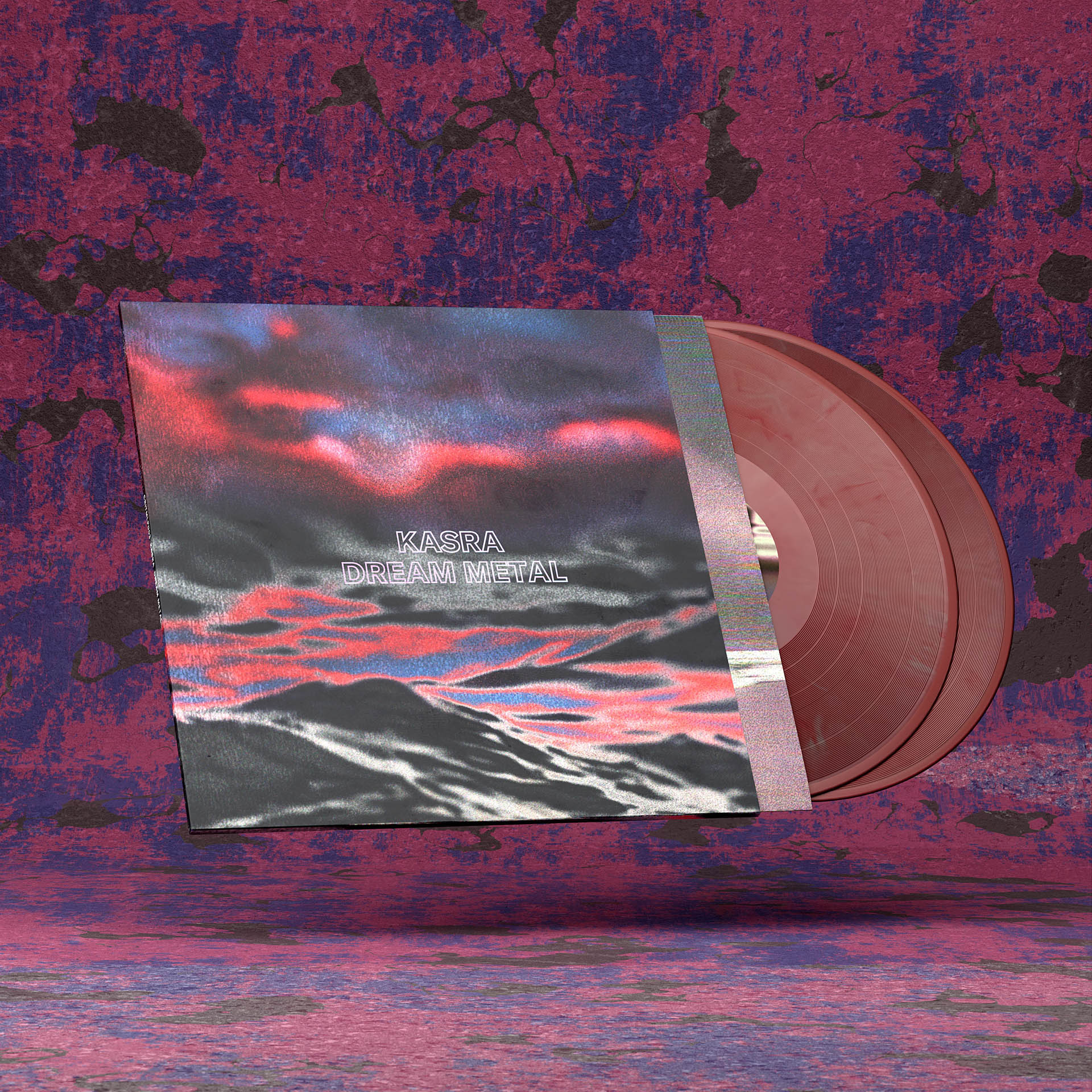
So we’re here to talk about Dream Metal.
I should preface this by explaining it’s a longer form 8-track project. It’s the longest project I’ve done with my name at the top but there’s a lot of collaborations on there. I wanted to make a record of a few tunes longer than an EP. You could call it a mini album. I found myself writing a bunch of music and then approaching some vocalists that I really wanted to work with, and then it just gradually came together and I was like I’ve done singles and I’ve done EPs so why don’t we put them all together and do something a bit more extended. Not for any other reason other than selfishly it’s something I wanted to do!
I still love making physical stuff. So for me as much as the music is the key element of it all, I really love getting involved in the artwork and how it looks and how it feels, I really wanted to do vinyl because I just love having something physical to hold when the project comes together. Maybe you could call it a vanity project, [laughing] but it’s my label, I can do what I want haha
I sent the music to some friends and everyone was really positive about them. I’d been playing them out and I was feeling really confident about them all. So I thought let’s put them all together as one thing rather than putting bits out here and there and splitting it up. It felt like a package to me, of things that should sit together. I’m really happy with how they sound together.
As I mentioned before I’ve found myself in a creative period for the past few months, and I wrote a lot of music and like everyone who is trying to piece together projects like this will know, a lot of them don’t make the cut. Writing music does not come easy to me, it’s graft, it really is, I sometimes really don’t like the process whatsoever. So when I’ve got a bunch of stuff I’m happy with it’s like okay, let’s get it out there. Because the regularity with which that happens isn’t that much.
From a personal point of view, it’s not a statement so much, but I wanted to carry on that creative process by having a project in which I could work really closely with an art designer on the visuals and the vinyl. Then the stuff we do on social media and then just try some things that I can adapt to use with artists on the label. After doing this for over 20 years, you want to feel like you’re moving forward and you want to feel like you’re learning things. We’ve got more artists with longer-form projects coming next year and hopefully, I can learn some things doing this for myself that I could pass on to the artists. It’s a process I wanted to go through, so it was quite valuable as well.
What have we got in store from the physical aspect of this project?
The artwork is looking really, really special and we’re gonna do a double vinyl. I’ll probably do a really nice T-shirt for it because I think it warrants a T-shirt.
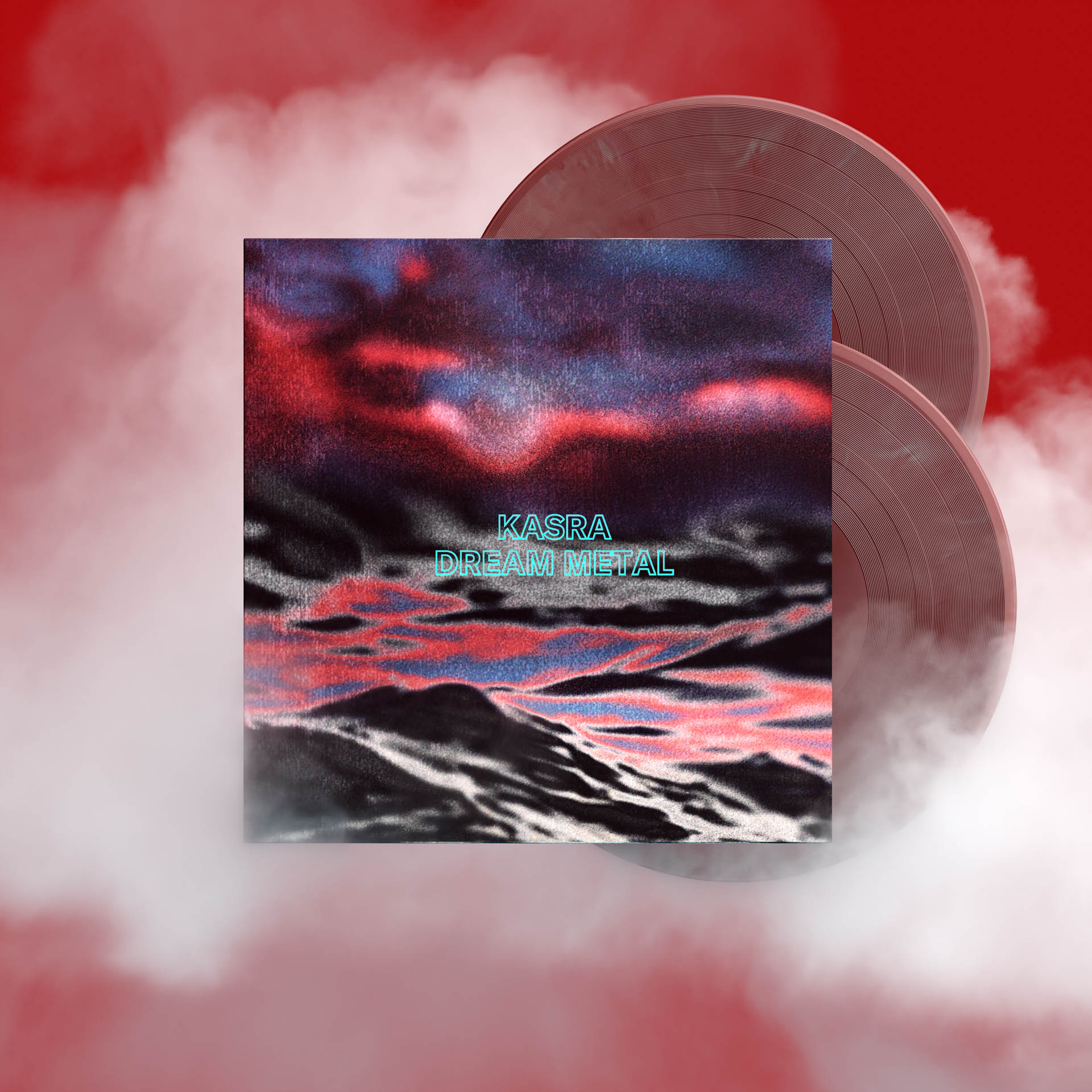
Critical always do great merch…
People really like it and I’m really happy with how we’ve got a good team that works on it. Everything we do we try to make sure that there’s a reason for it to exist. Not just slap a logo on a T-shirt and sell it.
Critical merch is very wearable, I feel like I’m wearing nice clothes rather than a label tee.
That’s a big compliment because, in the same way, I want our music to be listenable at home and in the club. I want you to be able to wear our merch in everyday life. I think it’s a massive compliment if someone comes up and goes “That’s really nice, what is that?” And doesn’t know it’s record label merch.
Because of the way I am about stuff, I don’t really like that straight-down-the-line way of doing things. I’m not pretending we’re a fashion brand or something like that, but I do think there is value in having something universal, just a really nice bit of clothing. So for this project, we’ll probably create something with my massive face on it, I’m joking! We wouldn’t do that. YET
Amazing, I’ll look forward to seeing all of that.
When you said you’ve been collecting these tracks, how long has this project been in the works?
The A-side with Gardna, I started writing the music about a year ago, and then me and Luke had a bit back and forth trying to get the vocals, and he smashed it. There were things I had on the boil, I had a folder of projects for probably the best part of a year. The versions that I first made were completely different to the last ones, which is pretty much always the case
I was in New Zealand on tour in February of this year and I had a day in Auckland where the weather was terrible and no one I knew was around. So I literally had this complete time to myself. It was a little bit uneasy at first because we’re not used to that- we’re always hyper-connected or doing something. So I thought I might sit and go through all these old projects, see if there’s any gold or take a bass sample here, some drums there and start piecing something together. I did find a couple of old projects that I hadn’t opened in two or three years.
There are quite a lot of vocal features which really bring the tracks to life. I started going to those vocalists and asking them what they wanted to do with the tracks, there was always quite a lot back and forth at that point. Wanting to do a physical product means it’s inevitable that it’s going to make it a bit longer as well.
And what is dream metal? Where did the name come from?
I’m really into how two separate words sound together. I’m not really sure what it means. I just like the imagery it conjures up. It’s quite ethereal, a little bit hopeful, to dream is a nice thing to do. I don’t think my music is necessarily dark- it has a mood and a tone. But then I also think it’s written to be enjoyed. So it’s about those who… I don’t know- I just really liked the two words. I wrote down a load of words on a pad and they just worked together.
I never usually ask about project names, so there must be something alluring about it.
I do think that being open to interpretation and having a slightly cryptic nature to things is quite cool. I’m not really like someone who wants to put myself front and centre of stuff. I want people to know about what I do and it means the world to me when I get reactions. Music is a huge part of who I am but I quite like some bits being left open to interpretation.
Nice… So seven out of eight tracks are collaborations, why do you like collaborating so much?
In terms of the vocalist collabs, it was just that those were the people who I really wanted to work with and they came together quite organically. I was just reaching out to people, for example, Gardna worked well. I thought Luke would be really interesting because his style is quite different to what is associated with myself. Killa P was someone I’ve wanted to work with for ages as well as Riko Dan. Those tracks came together easily. I feel like my music is quite stripped back and simplistic, so I feel like vocalists add a real melodic extra layer.
I alluded to it earlier but I just sat there and was like, “What is the best collection of stuff I’ve got? What’s been going down in clubs? What have I sent to people and they say this is really cool?” Those are the tracks I was like, okay, let’s just put this together.
Were there any of your best tracks that you absolutely loved but didn’t quite fit with the rest of the collection?
Yeah. I’ve got a really cool deep liquid thing I tried to make work, and I couldn’t get it right, but I’ve just managed to break the back of it in the past couple of weeks. So hopefully I’ll release that as a follow-up single.
I wanted to talk to you about the massive grime influences coming through in D&B at the moment. For years now we’ve had people like Lakeway and now Napes really pushing the hybrid of the sounds. Why do you think it works so well together?
The UK is blessed with a lot of incredible Grime MC talent and drum and bass obviously works incredibly well with MCs.
It’s like with anything though, there’s been plenty of occasions where we’ve tried to work with people from the grime scene and it just hasn’t worked for whatever reason. That’s usually when it’s majors feeding the tune rather than anything the artist has done. Even though drum and bass appears to be mainstream at the moment- underground drum and bass is, and always will be here and there’s a lot of kinship there with grime. Grime continues to have its moment in the mainstream, but the underground artists and fans are still there as well. I don’t know we’d probably have to ask some people from the grime scene what they think but it feels like there’s an affinity there. We’re chipping away at the same thing- we’re trying to do what we believe in.
And they’re super f**king talented man, it’s a real privilege and an honour to have people on that side of the scene to want to work with us so freely and deliver such great stuff. I know there’s mutual respect there. A lot of stuff in music can be transactional- it could be “I’ll do the vocal for you, but I want to do a load of gigs” or this kind of thing, we could collaborate but what’s in it for me… But these guys I’ve come across just want to create.
I like to work with people who just like creating. You want it to do well, you want people to hear the music and you want to spread it as far and wide as you can. Any upside is obviously fantastic, but the core of why you do things should be because you believe in what you want to make and you want to make it.
I bumped into you at the Arctic Monkeys London show in the summer, so I just wanted to talk to you about things outside of drum and bass. What are your go-to genres outside of electronic music?
I don’t really listen to a lot of electronic music. I’ve got half my record collection here. This behind me, is all alternative guitar music. I listen to a lot of people like Sonic Youth, and a lot of bands from the 90s. There’s a big resurgence in alternative guitar music that’s inspired by the 90s so I’m also taking in a lot of current things, bands like Nothing and a new one I found the other week called Her New Knife, amazing.
I listen to a lot of experimental noise music. One of my favourite bands of all time is a New Zealand noise guitar trio called The Dead C, I have about 40 of their records. It’s really hard to say who my favourite band is. I’m also really into an artist called Grouper, she’s a woman called Liz Harris who makes really beautiful ethereal reverb-drenched stuff.
I like to listen to what you could call drone music. [Thinks for a while.] I’m not sure what I listen to if I had to say- it’s a lot of alternative, a lot of American alternative bands and artists who normally play guitars.
Interesting… What radio station have you got tuned in the car?
I don’t really turn the radio on in the car, as I have a toddler, so I have to make a compromise. I say to him “Right, I’m gonna play this record, and you have to pick one song.” I really love records which feels like a crazy thing to like in 2023, but putting a record on it is just amazing. I find that it seeps into everything you’re doing when you’re working in music because I still
visualise everything we do. How does it look and feel? What is this project if you could hold it? Even if it’s digital, what is the core or the essence of this thing?
I find my records really inspiring, I’ve got an example here- this is a band from Florida from the 90s- they would make their records by painting on old record sleeves and then just Xeroxing bits of paper. I’ve got all these odd little artefacts from the 90s.
Where’d you find them, do you go online or do you search?
I bought a lot when I was a kid. Basically every Christmas and birthday from the ages of 14 to 19 I gave my parents a list of records and said “Don’t buy me anything else, just these records.” The records were so obscure that they’d have to order them from random mail-order stores. I’d be like “I’ve called the shop already, they’re on hold just pay for them, and then they’ll send them!” Then I’d literally just open so many records on Christmas day, I still remember the feeling now, just so f****** happy. I haven’t sold any records. I’ve got loads of classics- I’ve got all the critical releases here obviously as well. I do still buy stuff too because on Discogs you could pick up things you missed.
It’s quite hard to explain what I listen to, I listen to a lot of different stuff. We all do, because in your pocket now, you have access to pretty much anything you want to listen to. I’ve gotten into jazz quite a bit recently as well, which is probably going to be my downfall- there are a lot of jazz records to find and buy. There’s something about the pace, it’s a lot slower and everything in life is just so fast. But I think that really, I just f**king love music.
I’ve found a lot of people who like Noise music tend to be really into music. I personally, don’t understand it, but the people I know who do are usually like musical encyclopaedias personified.
A lot of it is incredibly challenging, but that’s kind of the point. There are different schools of thought on noise, you can theorise about it all the time, and some of it is super interesting. I’m fascinated by people who are really good at something but then they break all the rules. A lot of the best experimental musicians are incredibly accomplished traditional musicians who know how to unravel all the strings and make something completely out there. You could be a virtuoso piano player but if you choose to play something unlistenable, you understand it so much you can take it the other way. It’s quite a cool way to use your skills, maybe some other people would argue this is a complete waste.
The last time we spoke to you was just before your B2B show, how did it go?
It was amazing. It’s really, really, really good. Yeah, the concept worked well. We’re trying to work on another iteration of it. We had such an interesting reaction, people were like wow, this is so cool. I mentioned it to UKF at the time, but the idea was born from Skilliam saying- “don’t just book people, lift them up.” Which I still firmly believe in, it certainly resonated with me.
There’s always going to be situations where you can’t necessarily make that work, but when you do have the opportunity, let’s give new artists the platform. Don’t just put them on when doors are open for half an hour, actually put them in front of people and let them show what they’ve got to offer. It felt really special that we were able to do that.
I remember attending your local label club nights 15 years ago, watching Critical go from smaller clubs to the likes of Printworks, has been a joy. There’s been a murmuring of debate on social media about how we rescue the local club scene, what the big events can do and how it’s really hard for smaller promoters to make money. What do you think about the situation and how can we move forward?
I think it’s really really complicated. It’s a conversation that is happening. I’m not very good at taking these conversations online, but I’ll have them a lot with people who work in the industry, the artists and the agents. Critical are lucky in that we have experienced both local and huge-scale events.
It’s a real problem because it’s unsustainable for an underground label to just put on big raves. Not only because it’s essentially underground music and it’s hard to sell a lot of tickets. But there are a lot of social and socioeconomic things and practices that make everything harder, let alone the current landscape of underground music or dance music in general.
The way people consume things has changed. What people want from events has changed, the value of a small low-lit Club is huge, those venues are really important because new artists need spaces to play. Not everyone wants to go and hear the top 20 hits, people want to hear underground music. And those smaller places are normally cultural centres in their city because there’s a community around them. Big enormous warehouses do not have a community around them. So the value of these spaces is so important.
On the other side, you have a world where seemingly people would rather spend 60 pounds on a ticket than 20 pounds on a ticket because they’re getting a “bigger experience.” It looks better on their social media and their friends who are on the fence about going to a club night will probably go to a big show because even if they don’t really know what the music’s about, they can go all day and all of our friends are going and the light show is pretty amazing.
In general, from a personal point of view, I feel sad about the decimation of the local, smaller underground scene because that’s where I come from. It’s really important to me. Some people might look at me and say “ Well you take Printworks and Warehouse Project money.” I do, but there’s also value in playing them as well. You need to try and coexist. One monopoly is not good. You need somewhere for the artist to grow into but then also you need somewhere for the artists to come from. Currently, it feels a bit like we only have spaces of a certain level, or eventually the only places where raves will exist will be bigger spaces. But then how long can it be sustained? Drum and bass is certainly having its moment in the sun or should I say a certain style of drum and bass is certainly having its moment in the sun- that’s fantastic, but will it continue, maybe not, it’s always a cycle.
There are a lot of things that need to be considered as well. DJs all want to be paid a certain amount, maybe smaller clubs can’t afford that. I’m in underground drum and bass but I’m not completely blameless. There are extenuating factors, the cost of living is just crazy, and the cost to put on a club night is higher than ever. It’s too complicated to be summed up in a sound bite. But the ecosystem is out of balance at the moment and it needs some sort of change, and I’m not quite sure how that comes about. But it gives me hope that the underground is amazing, some of the best music I’ve heard from inside our scene is around right now, and we’ve got some exciting artists.
Also with the huge exposure that we’re getting at the moment, you’d like to think that some of those people will start to dig a bit deeper and see what else is going on and then we might get some new fans off the back of that as well. There’s a lot of music around right now, which is classed as the same genre, but it doesn’t sound anything like mine, I’m sure they would say vice versa.
There’s a lot of the underground looking at what else is going on and sort of pointing fingers. But those people don’t give a s*** about us. So you really shouldn’t be worried about them. And I know the mainstream does have an effect on the underground, but I think over time these two things will start to separate. And that will probably be for the best. But if you’re worrying about what other things are going on that you can’t control then your energies are wasted.
It’s very much an oversimplification, I’m aware, but the roots of this are wider than just Top 20 records and warehouses. It’s social media, it’s how people consume everything now.
We’ve been talking about raising new artists and how we consume things. What do you think about Spotify’s recent announcement around the changes to their royalty model– artists only qualifying for payment after 1000 plays?
We are at the behest of a machine that doesn’t care about the cultivation of cultures. We’re at the beck and call of something that literally couldn’t care less about us. So you have to play. The way that we approach it is that we do the best we can for our artists. Because that’s all you can do- put your artists in the best position. We give them the best artwork, we make sure the record sounds as good as it can, and make sure we do the best marketing and the best promotion we can. We maximise the potential for the artist’s music to be heard. Unfortunately, a lot of our music doesn’t play into the algorithm. It’s awful, it’s so Black Mirror. You have to capitalise on the other things that we can control a bit more. Our strengths are that we work with some of the most exciting artists around, so let’s give them the platform to be heard as much as we can. We have a fan base that really supports what we do, let’s make sure that we reward our fan base by giving them the best we can. And use the platforms that do support things like Bandcamp or our own store and cultivate communities ourselves.
You can’t rely on something that is not necessarily designed for what you’re doing. You’re trying to appease something that is just looking over you. So, it’s really hard to know what to do because you can push back against it, but what are you gonna do? Try and go direct to your audience as much as you can and always put the music first, always.
